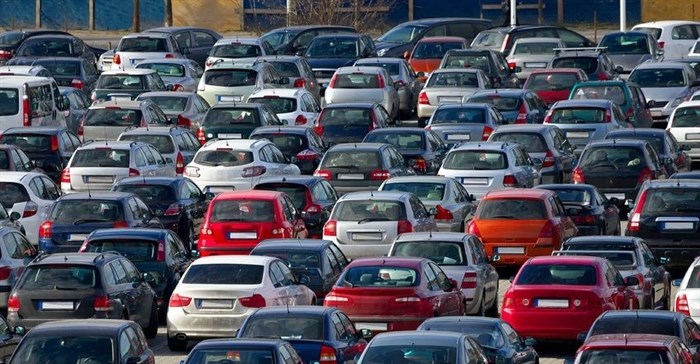
Top stories






AutomotiveHilux Custom Builds offers purpose-built solutions for your business
Toyota South Africa Motors 16 Feb 2026
More news

Marketing & Media
Ads are coming to AI. Does that really have to be such a bad thing?















It has been hugely damaging to consumer confidence. In fact, it seems that a majority of consumers are now sceptical about the environmental claims made by any car manufacturer - whether they cheated the tests or not.
But as VW continues to suffer the consequences of its deception, there's no reason to tar the whole industry with the same brush. In fact, doing so could lead to the introduction of regulations that are too tough, too soon - and this would risk stalling progress on emissions altogether.
The fact is, all vehicles perform much better in laboratory tests than in real life. This means that there has always been a difference between a vehicle's emissions levels in the lab - which are used to ensure that legal requirements are met - and those it produces during day to day use. The data which points to these discrepancies has been in the public domain for many years.
Part of the problem is that it's very difficult to mimic real life conditions in the lab. The type approval test we use today was designed three decades ago by the EU in consultation with the industry, to deliver a precise benchmark for vehicle emissions system performance.
But back then, the technology used to test vehicles could not fully and accurately represent the dynamics of driving. Real driving is much more aggressive and varied than testing technologies could then account for reliably. The tests must measure exhaust emissions in a robust and repeatable manner. And while the tools we use for testing have developed enormously over the years, the challenge to be ever more dynamic and accurate still persists.

So, regulatory tests were never intended to be a predictor of real world behaviour. Rather, they are an incredibly useful tool for ranking and comparing technologies, vehicles or manufacturers, and have proven very effective at driving technological change. For example, tests which revealed the effectiveness of the diesel particulate filter - a device which removes soot from exhaust fumes - led to their uptake right across Europe by the late-2000s.
Progress like this comes about by maintaining a delicate balance between the realities of the car industry, and the environmental and public health aims of the regulators.
As a result of this process, the EU Technical Committee for Motor Vehicles recently agreed to introduce recently developed real driving emissions (RDE) tests for diesel cars. This is part of the latest set of
regulations - called EU6 - which marks the largest ever revision to emissions standards.
The RDE requirements will introduce on-road emissions measurements for the first time, with initial real world emissions limits set 2.1 times higher than the lab-based limits. This should make it impossible for any company to subvert the process in the way it seems VW has. And it means that discrepancies between lab and real driving performance will be clearly reported. Even so, the measures were still less severe than some were expecting.
Yet meeting them will still present a significant hurdle for the industry. Car makers operate in one of the most demanding of all business environments, and automotive engineers have to resolve the complex trade-offs that are inevitable between legal requirements, customer preference, innovation, cost and fuel efficiency.
It's crucial that the targets set by regulators are achievable, under these circumstances. If they are not, it would seriously damage the commercial viability of car companies. And this would lead to an economic and social fallout too huge to consider: I am from Coventry - the home of the British motor industry - and old enough to have seen the damage caused by the loss of so many of the great companies that once built cars in the city.
Over the past 25 years, regulations in the EU have evolved to see real world emissions from petrol and diesel engines fall dramatically - in many cases by a factor of around 100.
One important exception to this trend is the level of nitrogen oxides (NOx) in emissions from diesel passenger cars. NOx - the most intractable of all emissions for diesel engines - was at the centre of the emissions scandal. But until very recently, it was also the pollutant with the least robust evidence of negative health impacts. For this reason, it was not a high priority target for regulators, compared with particulates, unburnt hydrocarbons and deadly carbon monoxide emissions.
But today, the effective elimination of these other emissions from modern passenger cars, and the attention warranted by VW's behaviour, has cleared the way to focus on the NOx issue. The introduction of EU6 and RDE requirements will undoubtedly promote the adoption of technologies that work well in the real world. In fact, several diesel cars currently on sale in Europe already meet the future regulations.
Automotive engineers can now focus on what is really important for the customer, rather than meeting an outdated approval test. Addressing NOx emissions, improving air quality and reducing CO2 will be the order of the day. So, despite the VW scandal continuing to unfold, consumers have more cause for optimism than suspicion.![]()

The Conversation Africa is an independent source of news and views from the academic and research community. Its aim is to promote better understanding of current affairs and complex issues, and allow for a better quality of public discourse and conversation.
Go to: https://theconversation.com/africa